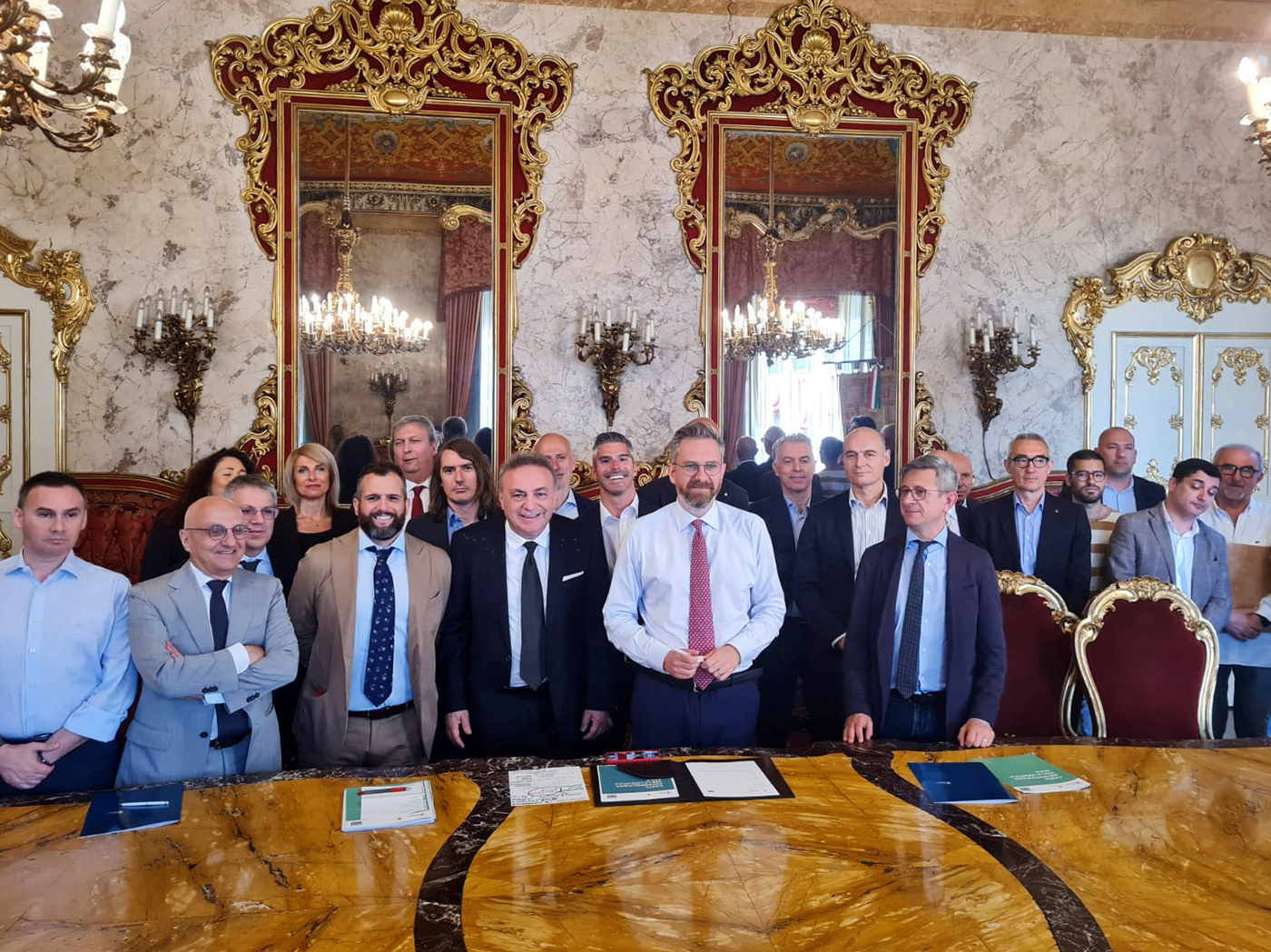A commitment to corporate social responsibility. What was achieved with the signing on Tuesday 30 May in the Sala Rossa of Bologna’s Palazzo Malvezzi represents a starting point with significant ambitions. We signed the Metropolitan Charter for Ethical Logistics at an event involving the companies of Interporto Bologna, attended by Mayor Matteo Lepore, Sergio Lo Giudice – Chief of Cabinet of the Metropolitan City, Marco Spinedi – President of Interporto Bologna SpA, and Alessandro Alberani – Director of the Ethical Logistics project. Elena Amadesi, a Bologna native and Customer Service Coordinator of the Bologna branch, signed the commitment for Torello.
We are taking an important step and doing so together with OneExpress Italia Spa, Fercam Spa, Alisped Logistics, SUSA Spa, Schenker Italiana Spa, Due Torri Spa and GranTerre Spa, Ecornaturasì Spa Società Benefit, Camst Soc. Coop. A.r.l., two companies that do not operate directly in the logistics sector but make substantial use of logistics services.
What defines ‘ethical’ logistics? Productivity, efficiency and human values
Interporto Bologna employs 6,000 people across 130 companies, sees the passage of 980,000 lorries and 5,000 trains, and is a major source of productivity for the city. But the Metropolitan Charter for Ethical Logistics goes further: it extends beyond productivity into a development model that strives for the well-being of the community, the sustainable development of the territory and the environment because it is based on principles and values to which the logistics companies have decided to adhere.
The Charter’s commitments cover the topics of safety at work, preventive and continuous training, social cohesion and territorial integration, innovation, digitalisation, and environmental sustainability. Because we all know how much logistics ‘costs’ in terms of sustainability, how much effort it requires of citizens and the local area.
The Charter’s commitments cover the topics of safety at work, preventive and continuous training, social cohesion and territorial integration, innovation, digitalisation, and environmental sustainability. Because we all know how much logistics ‘costs’ in terms of sustainability, how much effort it requires of citizens and the local area.

